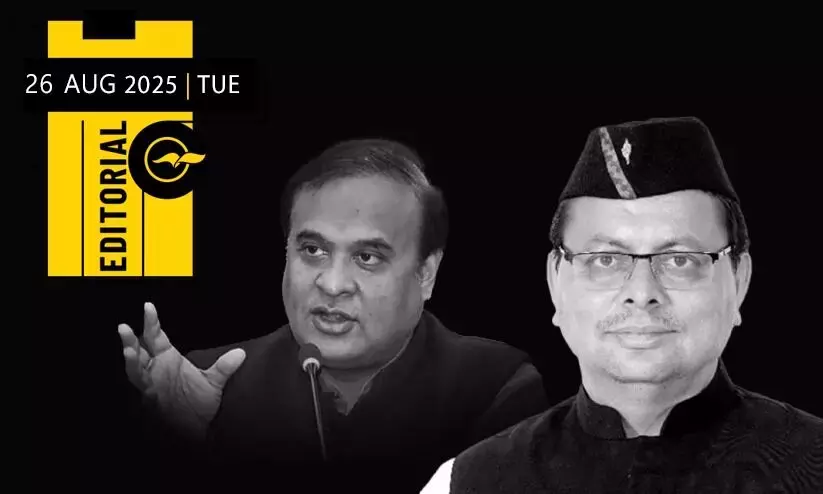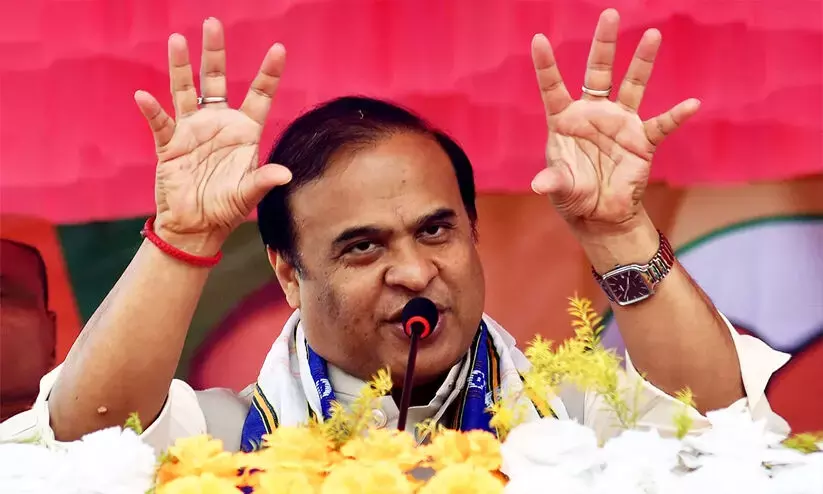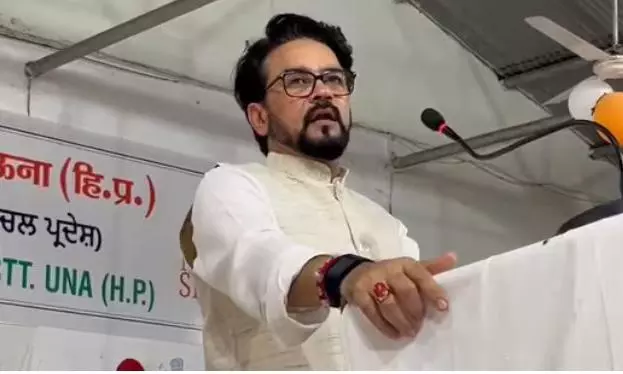
Hindutva experiments in Uttarakhand
text_fieldsUnder the shadow of central rule and under the leadership of Chief Minister Himanta Biswa Sharma, stories of minority persecution in Assam continue to unfold every day. It is not wrong to call Assam the testing ground of Hindutva in northern India. The tests that began in 2016, when a BJP government first came to power there, gained momentum once the party secured a second term in 2021. With Chief Minister Himanta, whose name is synonymous with Hindutva’s hate campaigns at the helm, all previously simmering poisonous proposals began to be implemented. Measures were initiated to extradite Muslim minorities and even those who spoke the Bengali language who were labelled infiltrators; nearly a lakh people were expelled on allegations of encroachments, and questions were raised over their citizenship. The government adopted such steps to leave in doubt the citizenship of the Muslim minority sections, who account for more than 30 percent of the state’s population and made them insecure.
Now, similar measures are also being reported from northern Uttarakhand. There too, the BJP government is in its second term. In the state assembly, three key legislative measures targeting minorities are being pursued by the government led by Pushkar Singh Dhami. Defying Opposition resistance, the Dhami government is moving forward, making it clear that new rounds of Hindutva experiments are about to be launched. In 2018, the Uttarakhand government’s first move was the introduction of the anti-conversion law called the Freedom of Religion Act, which included additional provisions, imposed harsher punishments, and introduced discriminatory measures. In practice, the anti-conversion law in Uttarakhand has been applied with strict sections. The law is such that forced religious conversion can be alleged on any one and prosecution initiated in anyone’s name; changing one’s religion is not treated as a mere criminal offence. Police can arrest without a warrant, and the law provides for the denial of bail until the matter is adjudicated in court. Even religious criticism and personal religious expression can come under forced conversion, allowing authorities to imprison individuals under this law. Initially, for forced religious conversion, the punishment was ten years of imprisonment and a fine of fifty thousand rupees. Through the amendments, this has been increased to life imprisonment and a fine of one lakh rupees. Even offer of free education, rewards, or employment by any individual or organisation, can henceforth be considered part of the forced conversion effort. The danger behind this is clear: by accusing someone of forced religious conversion, authorities can potentially keep them imprisoned for life.
Last Wednesday, the ‘Minority Education Bill’ passed in the state assembly is another tool of the BJP government. The bill establishes a special council to regulate minority educational institutions run by various minority religious communities, which account for 17 percent of the state’s population. This has gone to such an extent that the council will also have the final authority over matters, including the syllabi of these institutions. With the bill in place, even madrasa boards have been effectively brought under its ambit. Already, in Uttarakhand, several madrasas have been demolished following the Assam model, and the government is now asserting direct control over minority institutions, including those that run madrasas. Uttarakhand is a state that has a uniform civil code. The government has introduced discriminatory measures even in the present law during the state assembly session. For living-together arrangements prohibited by the law, punishments have been made stricter, and the government has been granted special powers to cancel marriage registrations. These three legislative measures are ultimately targeted at minorities. The logic applied in Assam is being replicated here as well. Through the use of terms like population explosions among minorities, land jihad, and forced conversions, Uttarakhand government is instilling fear and hatred among majority communities, thereby strengthening Hindutva’s growth.
Leaders including Narendra Modi had been saying, even before 2024 that if they get a third term, the country would move toward steps including a uniform civil code. However, not only did the BJP fail to win the two-thirds majority required for constitutional changes, but even for survival they had to bank on the support of the allies. Now the only impediment before the BJP government to take up such agenda is this absence of majority. However, implementing the same agenda in state governments under their control is easy for them. Such experiments have been conducted in states including Gujarat, Assam, and Uttarakhand. The anti-conversion law is now being introduced to make it an issue of national debate, as the Chief Minister himself has made clear. In fact, the uniform civil code introduced by the Uttarakhand government is being used as a model for drafting laws in Madhya Pradesh and Gujarat. There is little doubt that the minority education regulation, in this context, will also be replicated in other BJP-ruled states. In other words, Hindutva’s agendas are being implemented not only through Parliament but, the venom of that dangerous ideology is spreading at an even faster pace, through state legislatures.








